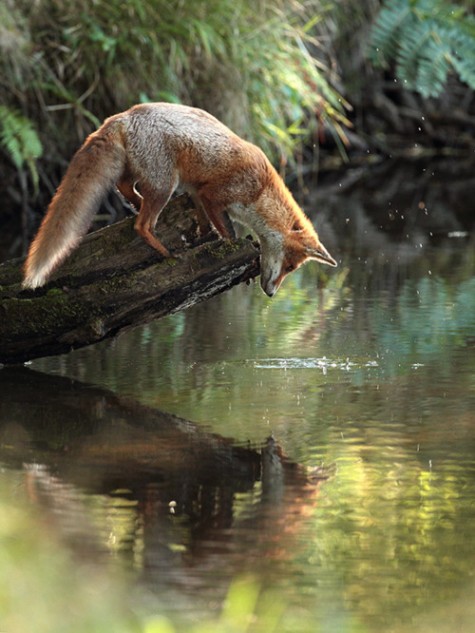The wild. I have drunk it, deep and raw, and heard its primal, unforgettable roar. We know it in our dreams, when our mind is off the leash, running wild. 'Outwardly, the equivalent of the unconscious is the wilderness: both of these terms meet, one step even further on, as one,' wrote Gary Snyder. 'It is in vain to dream of a wildness distinct from ourselves.' 'There is none such,' wrote Thoreau. 'It is the bog in our brains and bowels, the primitive vigor of Nature in us, that inspires the dream.'
And as dreams are essential to the psyche, wildness is to life.
We are animal in our blood and in our skin. We were not born for pavements and escalators but for thunder and mud. More. We are animal not only in body but in spirit. Our minds are the minds of wild animals.
Artists, who remember their wildness better than most, are animal artists, lifting their heads to sniff a quick wild scent in the air, and they know it unmistakably, they know the tug of wildness to be followed through your life is buckled by that strange and absolute obedience. ('You must have chaos in your soul to give birth to a dancing star,' wrote Nietzsche.) Children know it as magic and timeless play. Shamans of all sorts and inveterate misbehavers know it; those who cannot trammel themselves into a sensible job and life in the suburbs know it.
What is wild cannot be bought or sold, borrowed or copied. It is unmistakable, unforgettable, unshameable, elemental as earth and ice, water, fire and air, a quintessence, pure spirit, resolving into no constituents. Don't waste your wildness: it is precious and necessary.
—Jay Griffiths
Wild: An Elemental Journey






